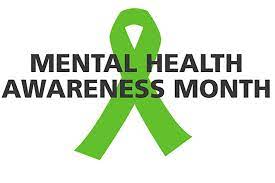It’s easy to point fingers at the families of the homeless who suffer from mental illness and state that they have a moral and ethical responsibility to care for their mentally ill family member. Unfortunately, the reality is not so simple. If every homeless person were taken in by their respective family members, what would life look like for those families? (Please read/remember my previous post about what frequently happens behind closed doors.)
At what point does it become justified for the other family members to disengage from a family member with mental illness? And after what cost to their physical, mental and emotional well-being?

Before we try to determine how to resolve homelessness among those suffering from mental illness, I want to circle back around to the challenges their families. The stigma of mental illness is pervasive in our communities and in country. When a family member struggles with mental illness, everyone in their immediate family is usually impacted. Here are a few scenarios to consider:
How do you “make” a grown adult take their medication? Often, when someone has taken their medication for an extended period of time, the effects of the medication allow them to successfully function in everyday living- holding a job, engaging appropriately with others, successfully handling conflicts and setbacks and maintaining healthy relationships with friends and family.
However, with the passage of time, they often think they are “cured” or “better” and no longer need their medication, so they stop taking it. While this may seem foolish and you might be quick to criticize their thinking, consider this: How many times have you stopped taking your antibiotics once you started to feel better, rather than finishing the prescription as directed by the doctor or pharmacist?
Unfortunately, while stopping your antibiotics may just make you relapse into poor physical health, stopping mental health medication often begins a rapid downhill spiral, and the behaviors that present for “episodes” reoccur, and the vicious cycle begins again. It is exhausting for the families to endure. How do you convince someone who thinks they are ‘okay’ and believes they don’t need to take their medication anymore that they only feel better BECAUSE of the medication, and not because the medication has resolved the underlying cause of their illness? It is often difficult and even impossible to reason with them at that point.

Can you force an adult to take their medication? Even if you could (and you can’t), how often would you want to wrestle your family member to the ground, pry their mouth open, shove pills in there and then make them swallow them? These families are either constantly worrying about the next crisis or dealing with a current crisis.
I’d also like to point out that it is usually the family members who are often the first, and most severely affected- physically, mentally and emotionally. When you factor in the stigma of mental illness, where and how does the family get the support they need? When do they get a break from the challenges that accompany their family member? How long can a family be expected to live in fear of violence, public outbursts, and the other litany of challenges they face?

Even if their loved one qualifies for benefits (SSI, Disability, etc.), do they have the capacity to manage their finances and life well enough to maintain housing, utilities, food and everyday living expenses? Families must be careful not to violate their loved one’s civil liberties, and cannot, legally, control their finances without going through court process of conservatorship. In addition, the court system is very reluctant to take away someone’s civil liberties and rights and it can hard to prove their level of incapacitation.
Let’s take it to the next stage: What if the mentally ill family member wants their “freedom”? Does the family have the right to restrict the person’s freedom in an effort to prevent public disturbances? No, not really.


These are just a few of the challenges that families must endure. If you put yourself in those situations, you may better understand how homelessness can be the end result, despite a family’s best efforts.
As we, as a nation, address this issue and the many that accompany it, I ask that you reserve judgment and choose grace the next time you experience an encounter with someone with a mental illness, a homeless person, and/or the families of those suffering from mental illness– whether they are homeless or not.







3 Comments
You write from the heart and which facts to back it up. Thank you for sheding light on this topic. It is near and dear to my heart.
Excellent blogpost! Homelessness is a complicated issue and in some respects, has become a culture in its own right. I personally know someone who is affected by mental illness, often homeless, with no living family. As I tried to “help” him, I quickly realized that I had neither the training, education, or resources to do so. It was a slippery slope and I almost sacrificed my own well-being, prosperity, snd reputation by being a life raft for him. Also, I had an uncle (hid rest his soul, he had Parkinson’s) who was often homeless in Chicago. My two brothers would search the city for him and get him to veterans care since he was a marine way back in the day. You’re totally spit on Sheli and I, too, feel the weight of humanity these days.
Such grace comes through in your writing. ‘Practise radical empathy’ is what I am trying to take away from this post.